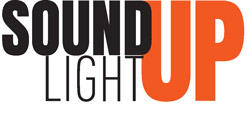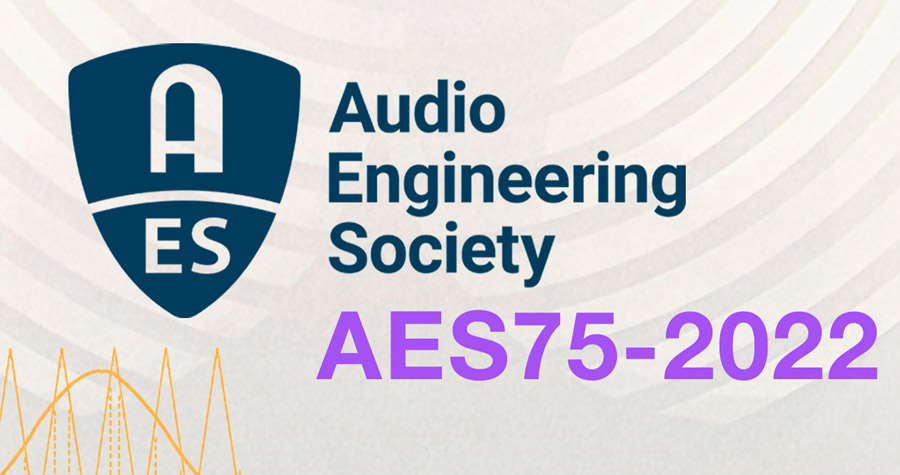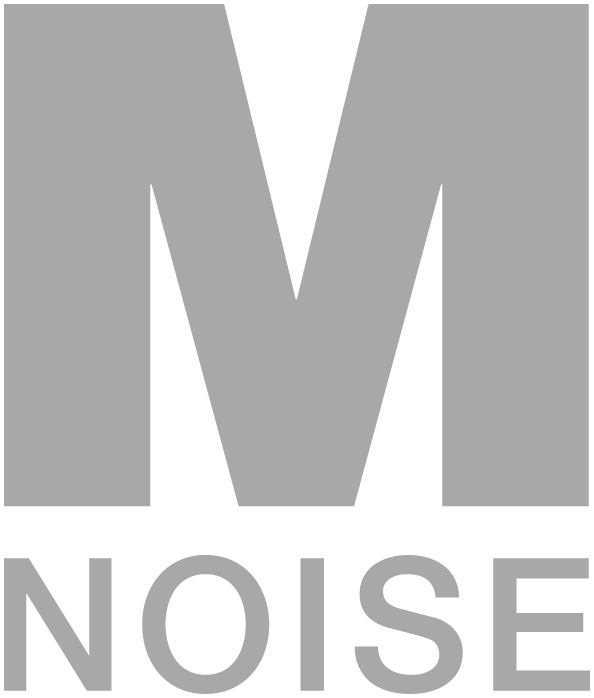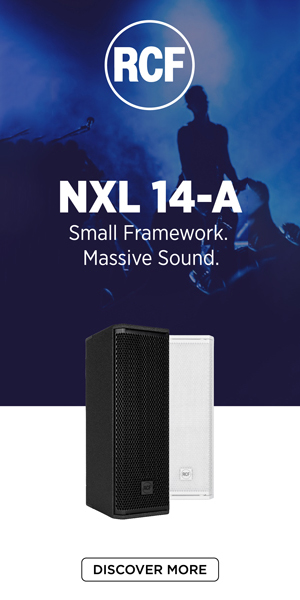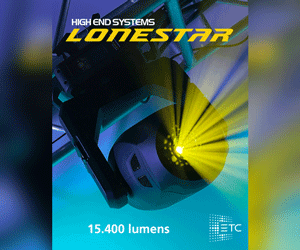The Audio Engineering Society announces the publication of AES75-2022 AES standard for Measuring loudspeaker maximum linear sound levels using noise. The new standard addresses the need for a practical and cohesive procedure for the prediction of loudspeaker performance.
AES75 is the result of extensive work by the AES Standards Committee’s SC-04-03-A Task Group, co-chaired by Merlijn van Veen (senior technical support and education specialist at Meyer Sound) and Roger Schwenke, Ph.D. (Meyer Sound senior scientist and innovation steward).
“The work of the drafting group was deliberate and thoughtful as they carefully refined the standard,” says AES Standards chair Bruce Olson. “AES75 will no doubt join the most impactful standards that the Society has published in its long history of providing the audio industry with critical tools for analyzing the performance of audio equipment and ensuring interoperability.”

Predictive evaluation of loudspeaker performance based on published specifications has traditionally been challenging due to inconsistencies in both measurement procedures and in how measured parameters are reported.
“Until now,” explains Schwenke, “reading an SPL number on a datasheet often inspired more questions than answers regarding test signals used and procedures for measurement. Most important to the end user is how the loudspeaker will perform with typical audio signals and whether the numbers can be compared apples-to-apples with numbers from one datasheet to another.”
“AES75 addresses these issues,” Schwenke continues, “by providing a detailed procedure as well as a specific test signal, M-Noise, whose RMS and peak levels as functions of frequency have been shown to better represent typical program material.
Furthermore, AES75 is designed to be independently verifiable, using analyzers and microphones typically used by audio professionals. By being independently verifiable, AES75 provides system specifiers and users a much more enforceable metric to use in quotes and architectural specs.”
The M-Noise test signal is based on Meyer Sound’s analysis of hundreds of music selections spanning all genres. The procedures documented in AES75 provide measurement of maximum linear sound levels by incrementally increasing playback levels until the magnitude or coherence of a loudspeaker’s acoustic reproduction of the M-Noise test signal reaches an unacceptable state. The AES75 test procedures cover performance measurements of both self-powered and externally powered loudspeakers.
Credit for the development of AES75 is owed to the large task group, AES’s standards management and to Meyer Sound’s original work, shares van Veen. “The chairs would like to acknowledge the nearly 80 task group members who represent all market verticals such as, but not limited to, automotive, consumer electronics, pro audio, post-production, and cinema,” he says.

“For more than two years — during a pandemic — we met more than 50 times, every other week, which is extraordinary given the circumstances!
Special recognition goes to the AES, Bruce Olson, Richard Cabot [AES standards manager], and Steve Hutt [recent co-chair AES Technical Council], as well as the SC-04-03 parent committee we report to for their continued support and guidance.
Finally, the chairs would like express gratitude to John and Helen Meyer and Meyer Sound where M-Noise and its former companion procedure originated.”
More information about AES75-2022 “AES standard for acoustics – Measuring loudspeaker maximum linear sound levels using noise” can be found in the Audio Engineering Society’s Standards News Blog.
The AES75 standard as well as the M-Noise signals and coherence test tracks are available for download at aes.org
Links:
– AES75-2022
– M-Noise and coherence test tracks download link
– AES Standards New Blog

